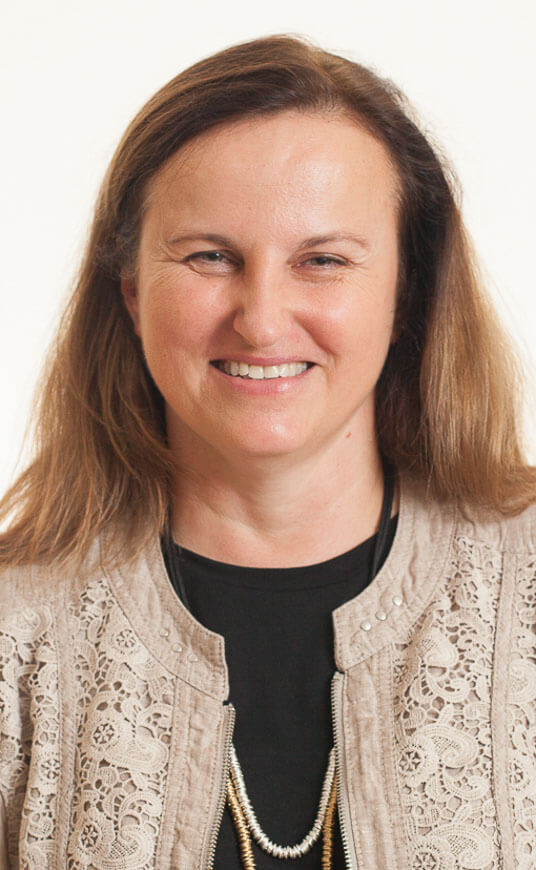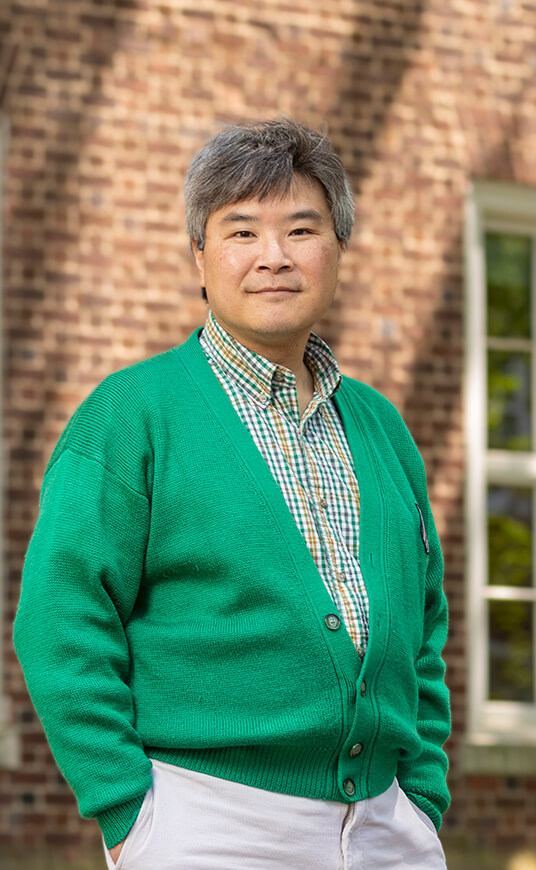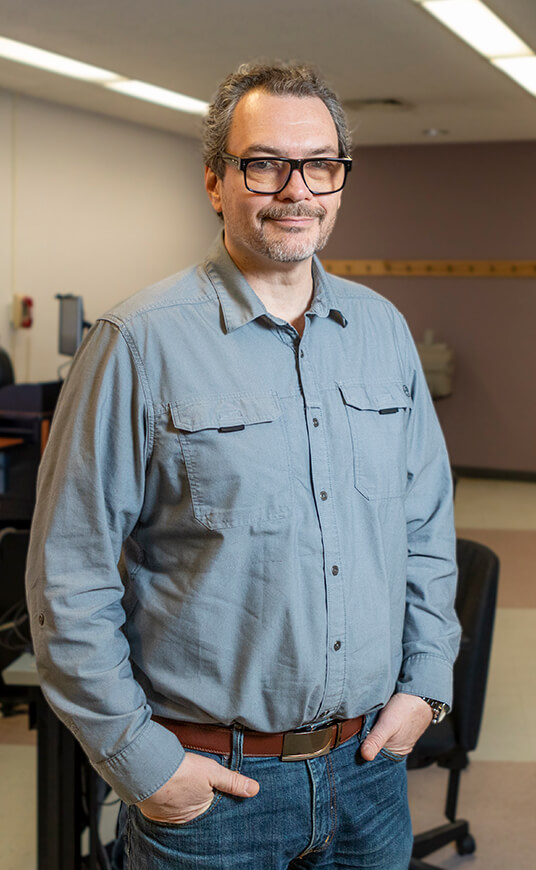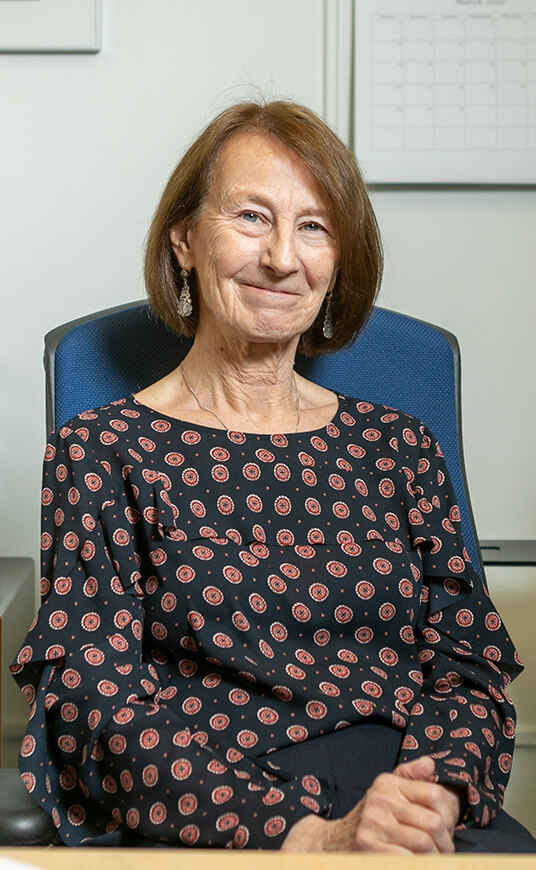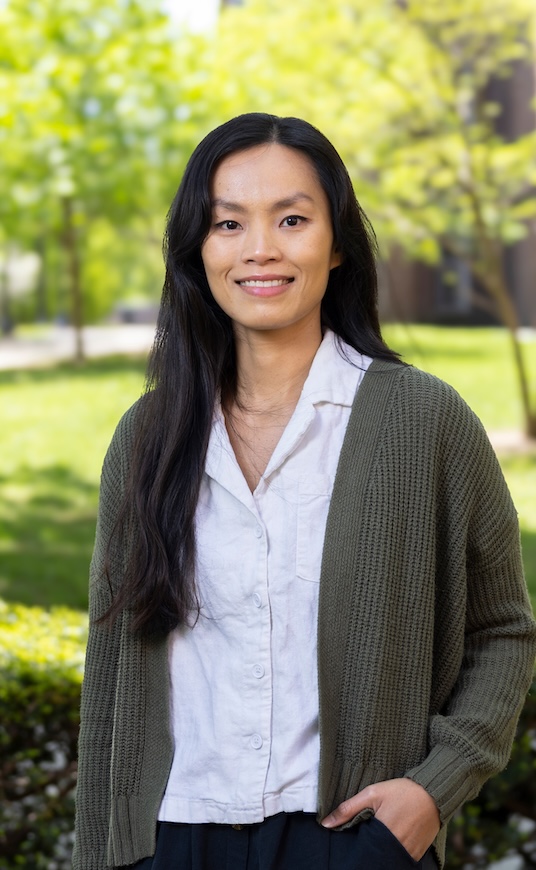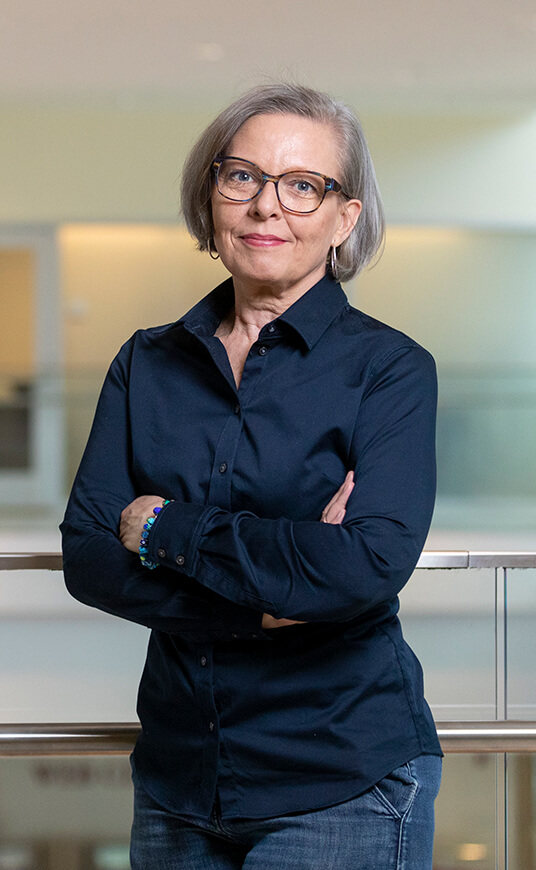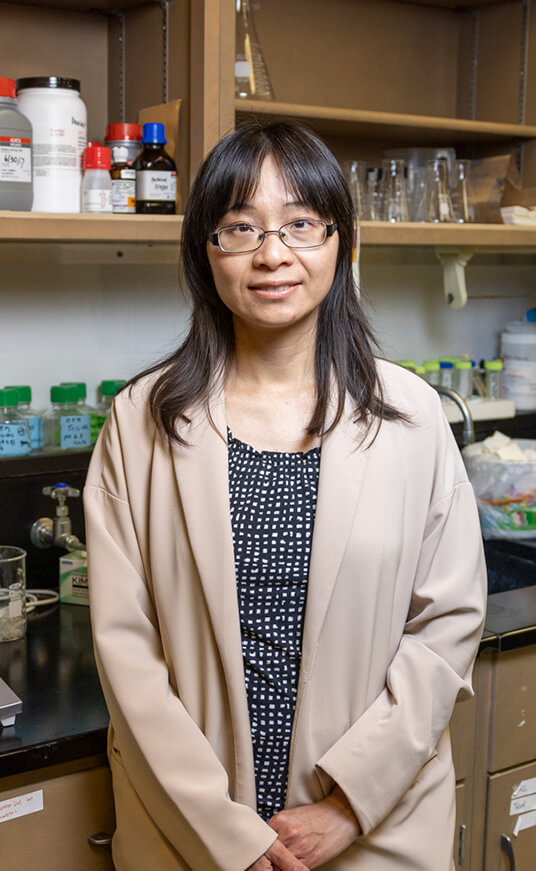Community Health, M.A. (Online)
School of Natural and Behavioral Sciences
Program Overview
The Master of Arts degree in community health serves both national and international students who are pursuing a career in health promotion/disease prevention. There are three specializations: community health education, food and health equity, and thanatology. Many of our graduate students are in practice in the field and come to Brooklyn College for advanced training and professional development.

Program Details
The program information listed here reflects the approved curriculum for the 2024–25 academic year per the Brooklyn College Bulletin. Bulletins from past academic years can be found here.
Program Description
The Master of Arts degree in community health serves both national and international students who are pursuing a career in health promotion/disease prevention. Many of our graduate students are in practice in the field and come to Brooklyn College for advanced training and professional development.
The program has three specializations: community health education, food and health equity, and thanatology. The community health education specialization provides broad knowledge of community health and health services with an emphasis on community planning and assessment. Graduates will design educational programs and conduct and evaluate community and public health activities and services to help improve the health of communities and individuals. Graduates typically find employment in public health departments, community-based organizations, hospitals, and clinics as patient educators, health coaches, community organizers, public health educators, and health program managers.
The food and health equity specialization prepares graduates to work in community settings with a focus on addressing inequities in our food and nutrition systems that disproportionately impact vulnerable and economically disadvantaged groups. Program graduates may work in preventive health services, including clinical healthcare, in corporate wellness centers, community nutrition outreach centers, and college health services. Food and health equity program organizers and developers may work in healthcare settings creating food and nutrition programs that focus on diversity; programs that address access to healthy and affordable foods in urban neighborhood.
The thanatology specialization provides community health training with a focus on the development of expertise in the area of dying, death, and bereavement. Graduates are prepared for a variety of positions in community health settings, including community-based organizations, hospitals, clinics, and in hospice and palliative care.
Students who have completed a Didactic Program in Nutrition and Dietetics (DPD) from an ACEND (Accreditation Council for Education in Nutrition and Dietetics)–accredited program may also apply to the Brooklyn College Dietetic Internship (DI) after completion of 24 credits in the M.A. food and health equity program. The DI provides students with the supervised practice needed to sit for the Registered Dietitian-Nutritionist (RDN) exam administered by the Commission on Dietetic Registration (CDR).
Matriculation Requirements
Applicants for the community health education and thanatology specializations must have at least 18 credits in acceptable health-related courses at the undergraduate or graduate level and a minimum GPA of 3.00. One year of relevant experience in the field may be accepted in place of up to 18 credits.
Applicants for the food and health equity specialization must have at least 18 credits in acceptable health-related and/or nutrition courses as well as a course in human nutrition. Credit for course work in this concentration may be given for relevant experience in the field (up to six credits). Credit will be determined by the chair.
Program Requirements (30 Credits)
Thirty credits are required for the degree. Students must complete one of the following three concentrations of study: Community Health Education (30 credits), Thanatology (30 credits), or Food and Health Equity (30 credits). The Community Health, M.A. is a fully online program. Students also have the option to take courses in person at Brooklyn College or at another CUNY college.
Student Learning Outcomes
Students will:
- Apply scientific knowledge to assess critically health data/information and community health profiles.
- Demonstrate analytical and communication skills for diverse audiences.
- Demonstrate knowledge of scientific research and evidenced based practice for use in the field.
- Demonstrate the importance of professional behavior, ethics, and human rights.
Admissions Requirements
- Fall Application Deadline—April 15 (priority deadline), August 15 (rolling admissions)
- Spring Application Deadline—November 15 (priority deadline), December 15 (rolling admissions)
Supporting Documents for Matriculation
Submit the following documents to the Office of Graduate Admissions:
- Transcripts from all colleges and universities attended. Applicants who earned a bachelor’s degree outside the United States need to submit a Course by Course International Transcript Evaluation. See Graduate Admissions for more information.
- Two letters of recommendation.
- Essay on academic interests and goals.
This program accepts nondegree applicants. You must submit the online application and transcripts.
Required Tests
- F-1 or J-1 international students must submit English Proficiency Exam. TOEFL—79, IELTS—6.5, PTE—58–63, Duolingo—105–160.
More Information
Refer to the instructions at Graduate Admissions.
Contact
Please see the individual specializations.
Or contact:
Office of Graduate Admissions
222 West Quad Center
2900 Bedford Avenue, Brooklyn, NY 11210
E: grads@brooklyn.cuny.edu
P: 718.951.4536
Office Hours
Mondays–Fridays, 9 a.m.–5 p.m.
To make an appointment with a graduate admissions counselor, visit:
Specializations
Community Health Education (30 Credits)
Required courses (27 credits): Health and Nutrition Sciences 7110X, 7120X, 7140X, 7150X, 7163X, 7170X, 7925X, and 7930X.
Elective courses: 3 credits
Community health education students interested in national certification as a certified health education specialist (CHES) may take the examination administered by the National Commission for Health Education Credentialing, Inc.
Exit Requirements
Students matriculated in the community health education concentration are required to submit an acceptable capstone project at the culmination of HNSC 7925X.
Contact
Enrique Pouget, Associate Professor
4107 Ingersoll Hall
E: enrique.pouget@brooklyn.cuny.edu
P: 718.951.5000 ext. 2736
Food and Health Equity (30 Credits)
Required courses (21 credits): Health and Nutrition Sciences 7110X, 7221X, 7230X 7242X, 7243X, 7244X, and 7931X.
Elective courses: Students must complete nine credits from the following: Health and Nutrition Sciences 7140X, 7184X, 7201X, 7202X, 7212X, 7232X, 7233X, 7234X, 7240X, and 7950X.
Students who choose a capstone project as the exit requirement must complete Health and Nutrition Sciences 7950X.
Students with advanced preparation may substitute other courses for required courses with the permission of the deputy chair.
Students interested in applying to the Dietetic Internship (DI) accredited by ACEND must have completed a Didactic Program in Nutrition and Dietetics (DPD) and 24 credits in the M.A. food and health equity program, including the elective course HNSC 7240X prior to the start of the internship.
Dietetic Interns must register for the following courses: Health and Nutrition Sciences 7200X, 7201X, 7202X, and 7203X. The supervised practice courses, Health and Nutrition Sciences 7202X and 7203X, will not count for electives toward the M.A. in food and heath equity completion requirements. Only students accepted to the Dietetic Internship may use HNSC 7200X and 7201X as elective courses.
Note: Separate applications must be made to the DI and to the M.A. food and health equity program.
Dietetic Internship (DI)
The ACEND-accredited Dietetic Internship (DI) at Brooklyn College is a two-semester program that provides the supervised practice experience required to sit for the Registered Dietitian Nutritionist (RDN) examination.
Students must be enrolled in the M.S. nutrition program or the M.A. in community health or food and health equity program in order to be eligible for the DI, and they must file a separate application through DICAS (Dietetic Internship Central Application System.) Students who have completed a DPD and have earned a graduate degree are also eligible to apply to the Brooklyn College DI. The supervised practice program enables students to apply theory and research to practice in clinical, community, and food service settings, thereby enriching their education and preparing them to make significant contributions to the profession.
Exit Requirements
Students in the food and health equity concentration must pass a comprehensive examination or complete a capstone project—the course 7950X must be completed as the capstone course. Information about the requirements for the comprehensive examination is in the section “Academic Regulations and Procedures.”
Contact
Enrique Pouget, Associate Professor
4107 Ingersoll Hall
E: enrique.pouget@brooklyn.cuny.edu
P: 718.951.5000 ext. 2736
Thanatology (30 Credits)
Required courses (30 credits): Students must complete 18 credits from the following courses: Health and Nutrition Sciences 7175X, 7180X, 7181X, 7182X, 7183X, 7184X, 7185X, 7186X, 7187X, 7188X, and 7901X. Students must complete Health and Nutrition Sciences 7110 and nine additional credits from the following courses: Health and Nutrition Sciences 7120X, 7141X, 7150X, 7163X, 7170X, 7171X, 7930X, and 7950X.
Thanatology students interested in national certification in thanatology (CT) may take the examination administered by the Association for Death Education and Counseling (ADEC).
Exit Requirements
Students matriculated in the thanatology concentration are required to pass a comprehensive exam or complete HNSC 7950X Capstone.
Contact
Enrique Pouget, Associate Professor
4107 Ingersoll Hall
E: enrique.pouget@brooklyn.cuny.edu
P: 718.951.5000 ext. 2736
Tracy Wong, Associate Professor
4135 Ingersoll Hall
E: tracy.wong@brooklyn.cuny.edu
P: 718.951.5000 ext. 6287
The Support You’ll Find
Brooklyn College is an integral part of the cultural and artistic energy of New York City. Our faculty members in the Department of Health and Nutrition Sciences offer incomparable expertise and tremendous talent, and each brings a unique perspective to their teaching and mentoring in and out of the classroom.
Internships and Employers
Through job fairs, the internship database, and internship panels, the Magner Career Center gives students in the community health M.A. program access to internships at a variety of companies.
In addition, students who have completed a Didactic Program in Nutrition and Dietetics (DPD) from an ACEND (Accreditation Council for Education in Nutrition and Dietetics)–accredited program may also apply to the Brooklyn College Dietetic Internship (DI) after completion of 24 credits in the M.A. food and health equity program. The DI provides students with the supervised practice needed to sit for the Registered Dietitian-Nutritionist Exam administered by the Commission on Dietetic Registration.
Brooklyn College nutrition alumni have found employment with many organizations, including:
- New York City Department of Education
- New York City Department of Health and Mental Hygiene
- New York City Health + Hospitals
- NYU Langone Health


